How to Get Vaccinated
Today, most Americans ages 6 months and older are eligible to receive the COVID-19 vaccine. This includes people who are pregnant, have allergies, or are immunocompromised.
We now offer vaccines for people ages 6 months and older at many locations throughout our community - both as a primary series and as a booster.
Our patients can also get the vaccine at nearly all of our employed doctor's offices, including Rochester Regional Health Pediatrics, Primary Care, OBGYN and Allergy, Immunology and Rheumatology locations.
When any updated COVID vaccine recommendations are released, check to see if you are affected based on your age, when you received your last shot, or any relevant health conditions.
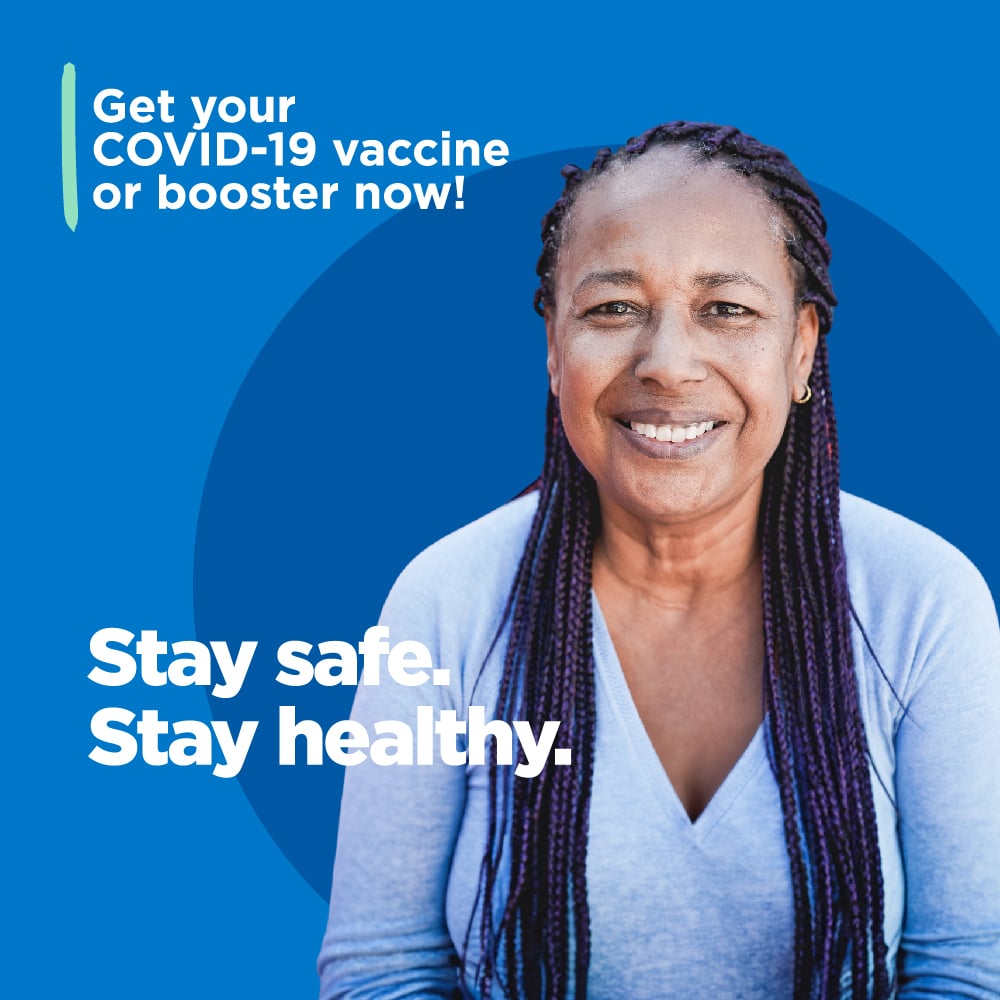
Addressing Questions: What to Know About the COVID-19 Vaccine
With information and misinformation abundant online, we took the time to bring some of the most common questions about the vaccine to our expert doctors and researchers.
These are their answers that are backed by the most current science.
"The Vaccines Are New"
The Pfizer-BioNTech, Moderna, and Novavax COVID-19 vaccines are approved under emergency use authorization for the prevention of COVID-19 disease. Both Pfizer and Moderna's vaccines can be administered to individuals 6 months and older; Novavax is authorized for individuals 12 years and older.
The previous monovalent versions of the Pfizer and Moderna COVID-19 vaccines were fully approved for use; the bivalent versions need to go through the full FDA approval process. This process includes additional evaluation of scientific data, safety analyses and further inspection of manufacturing processes.
The Janssen (Johnson & Johnson) vaccine is http://https://www.fda.gov/vaccines-blood-biologics/coronavirus-covid-19-cber-regulated-biologics/janssen-covid-19-vaccine">no longer authorized for use in the U.S. as of June 1, 2023.

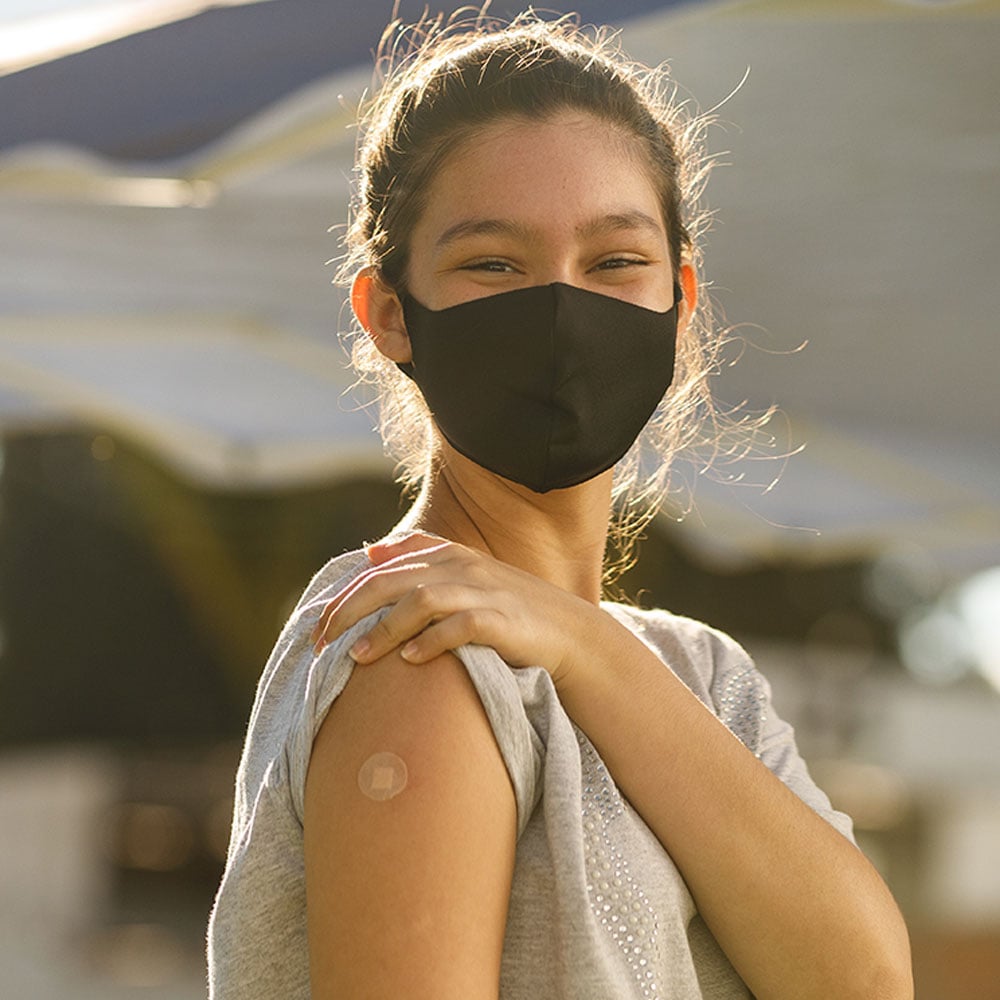
“Are the vaccines safe…
The Pfizer-BioNTech vaccine has been fully approved by the FDA for individuals over the age of 12 for the prevention of COVID-19 disease. It has also been given emergency use authorization by the FDA for the prevention of COVID-19 disease in children over the age of 6 months. In order to get approved for use in children, the clinical trials had the same safeguards and oversight as the adult approval process.
Researchers have found https://pubmed.ncbi.nlm.nih.gov/35051292/">no increased risk of infertility for women who got the COVID-19 vaccine compared to those who did not.
Data from https://www.cdc.gov/coronavirus/2019-ncov/vaccines/recommendations/pregnancy.html#anchor_1628692520287">hundreds of thousands of pregnant women who received the COVID-19 vaccine show they are not at any more risk than women who are unvaccinated.
Some research even shows https://www.cdc.gov/coronavirus/2019-ncov/vaccines/recommendations/pregnancy.html">pregnant mothers pass their antibodies to their baby, helping to protect them against the virus.
If you have a health condition and are unsure how the COVID-19 vaccine might affect you, ask your doctor or primary care provider.
If you need to find a doctor to talk with, you can find one using our https://www.rochesterregional.org/physician-directory?q&sortBy=alpha&sortOrder=asc&page=1&displayMode=0">Physician Directory.
“I don’t need the vaccine because…
If you tested positive for COVID-19 and recovered from the illness, your immune system does have antibodies that protect against COVID-19. Scientists have observed that natural immunity and vaccine-based immunity decline at roughly the same rate.
However, https://www.thelancet.com/journals/laninf/article/PIIS1473-3099(22)00801-5/fulltext">research shows people who have the best protection against becoming reinfected and getting seriously ill from COVID are those who have had COVID-19 and are vaccinated against the virus.
While CDC data suggests most people died from COVID-19 are ages 65 and older, there are younger individuals who have no history of health problems and still end up with severe cases of COVID-19 that result in lingering symptoms afterward - often called http://https://hive.rochesterregional.org/2022/01/long-covid">long COVID. It is hard to predict why some people get mild cases while others are more severe.
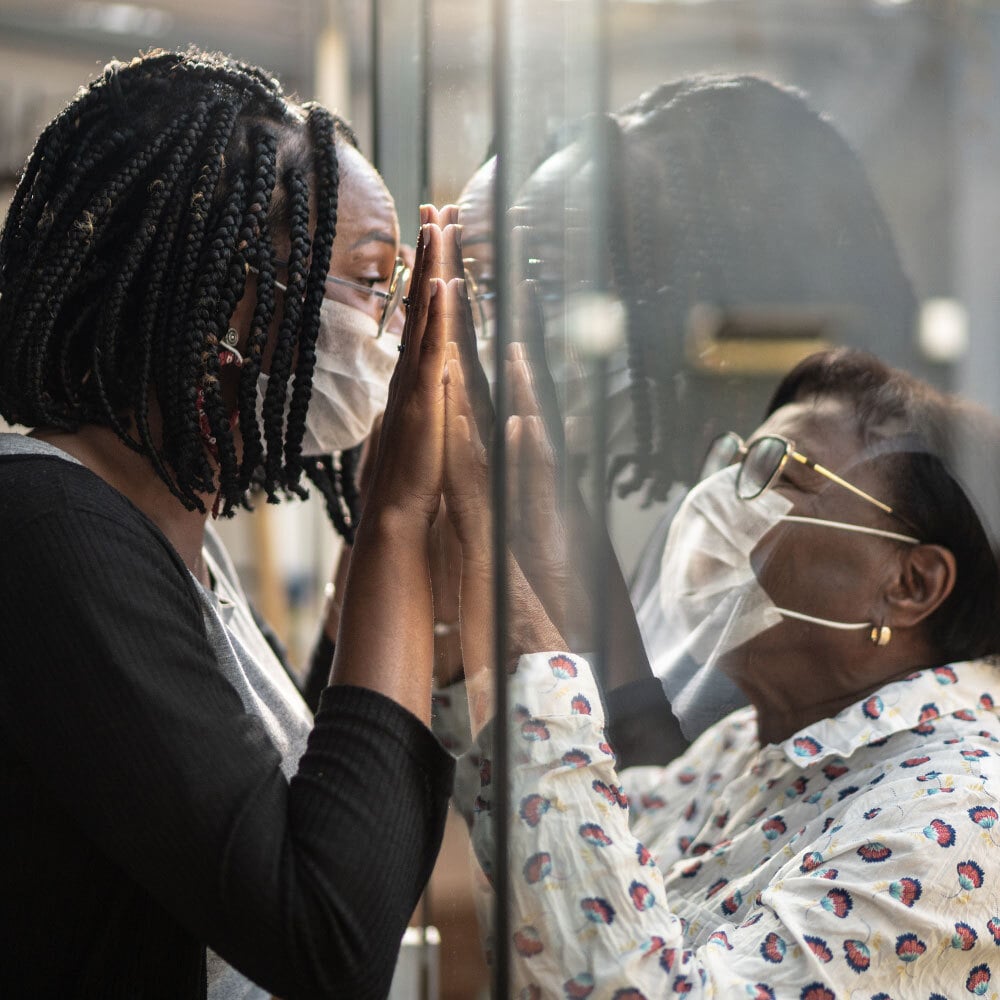
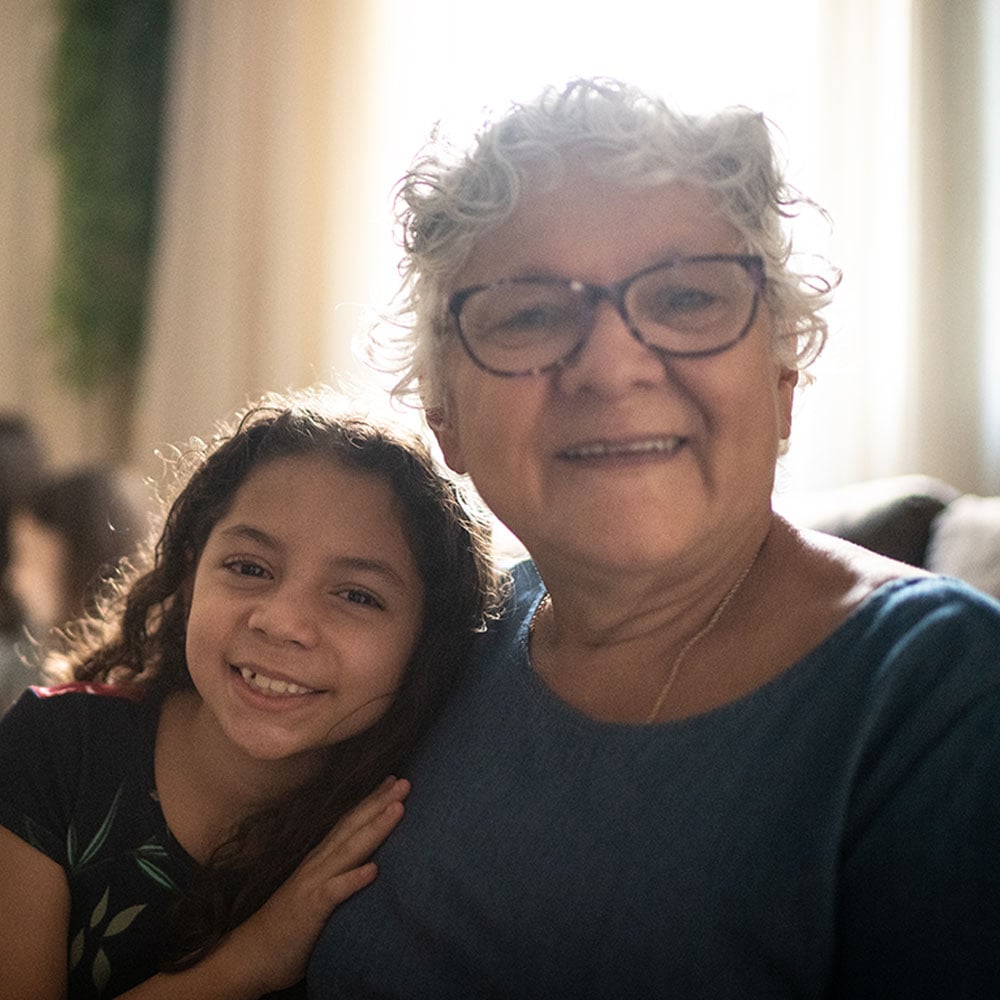
“Do the vaccines actually work?”
The updated COVID-19 vaccines are 62 percent effective in protecting against hospitalization due to a COVID-19 infection for people without an immunocompromising condition, according to a CDC analysis. While research is ongoing about natural vs. vaccine-acquired immunity, having multiple layers of protection against COVID is better than none at all.
Wondering how to talk with your doctor about the vaccine?
Here are a few ways to start:
- Ask them why they got vaccinated
Getting insight into your doctor’s decision-making process can be helpful and establishes some common ground. - Ask them why they think you should get vaccinated
Your doctor knows your health history better than most. - Share your frustrations
We are living in a global pandemic and a lot of people are sharing their thoughts and opinions about it. That can be overwhelming. Tell your doctor about those frustrations; it will help you both. - Be honest
Your doctor is there to listen to your concerns – big and small. If you are straightforward with them, they will be too.
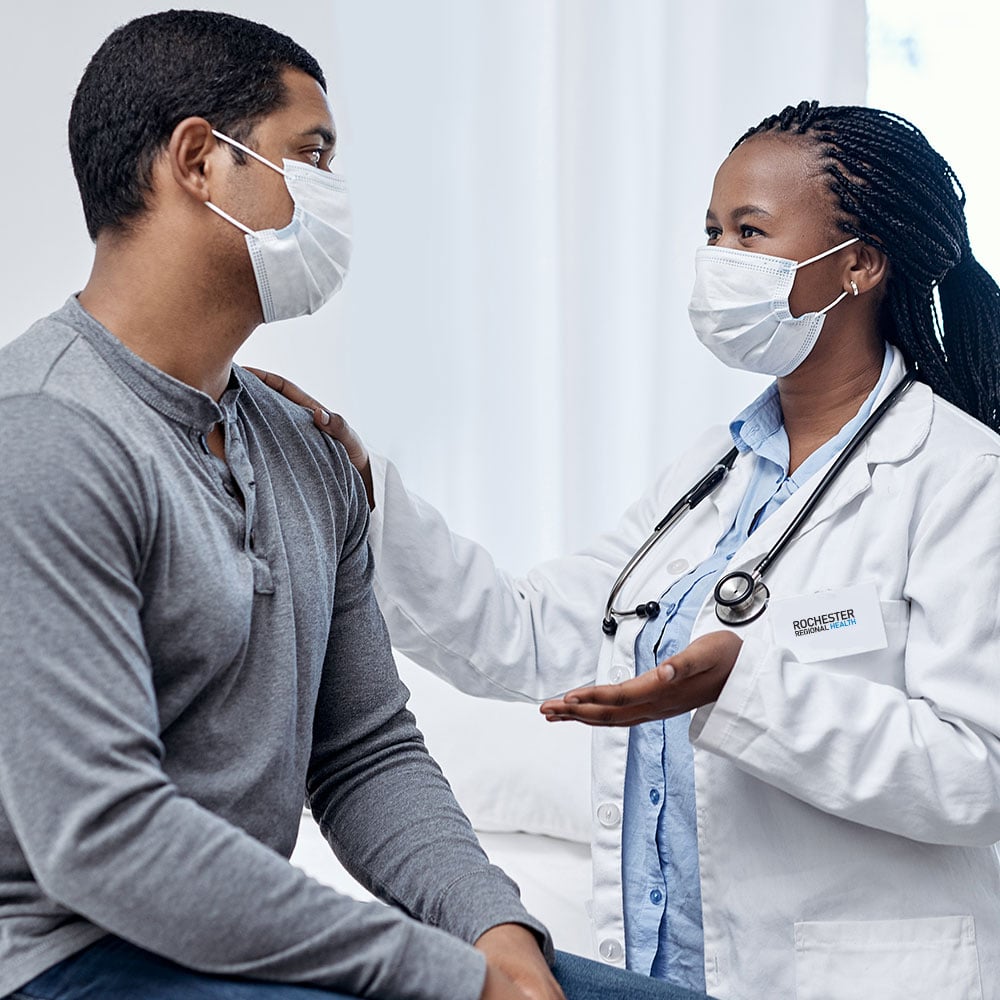
Some families and close friend groups have different views on the COVID-19 vaccine
If you are concerned about someone not being vaccinated, here are some suggestions on talking about it:
- Listen to the person’s concerns
Hear the other person out. Making them feel heard and jumping straight to correcting them is an important part of a healthy dialogue. - Don’t assume you already know their exact position
The person may not have the same information as you. If you focus too much on an idea you think they believe, the myth may become more memorable than the facts. - Bring an expert
If you have a medical professional who is part of the family or friend group, ask if they would be comfortable being involved in the conversation. This brings both expertise and familiarity. - The power of “I don’t know”
Admitting you don’t have all the answers is not a weakness. It is better to defer to someone with more expertise than say something you are unsure about for the sake of winning an argument. - Point them their own doctor
Building on a trusted healthcare-focused relationship can be a good thing for both the doctor and your friend/family member.


